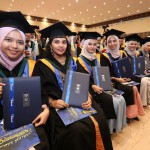Food waste is a major global issue with serious environmental, economic, and social consequences. Sustainable dining involves reducing food waste, a critical issue with significant environmental and economic implications. Research highlights that food waste not only squanders valuable resources like energy and water (Ayalon, 2023), but also contributes to pollution, affecting public health and social justice while causing economic losses (Leak Filho et al, 2023). Strategies to mitigate food waste include composting and reducing the weight of waste to lower carbon emissions (Agyemang et al, 2023; Rocha and Viegas, 2023). Food service establishments, including universities, play a crucial role in addressing this challenge by implementing sustainable practices and educating consumers on behavior change (Lekavicus et al, 2023) . By focusing on minimizing environmental impact, reducing carbon footprint, and promoting sustainable food choices, the food service industry can lead the way in fostering a more sustainable and responsible approach to dining.
Food waste is indeed a growing concern in Malaysia, mirroring global trends. Studies in the Klang Valley area highlight that household behaviors, such as overbuying, contribute significantly to food waste, especially post-COVID-19 emergence (Ariffin et al, 2023). Urban households in the Klang Valley show positive intentions towards sustainable food waste management practices, yet composting remains underutilized, indicating a need for holistic approaches and awareness campaigns (Masdek et al, 2023). Additionally, food establishments in the Northern Region of Malaysia, particularly Western and Indian Muslim restaurants, generate substantial food waste, with plate waste being a significant contributor (Sha’ari et al., 2023). Efforts to address food waste among foodservice operators in Petaling Jaya reveal a gap between knowledge, attitudes, and practices, suggesting the need for tailored interventions to mitigate food waste effectively (Zamri et al, 2022).
Factors contributing to food waste in Malaysia include consumer behavior, inefficiencies in the food supply chain, and practices within the hospitality industry. Malaysians often overbuy food due to promotional offers, bulk purchasing patterns, and cultural traditions that emphasize abundance, leading to significant food waste at the household level. In the food supply chain, inefficiencies in production, processing, distribution, and retail contribute to wastage, particularly due to poor storage and transportation techniques that result in the spoiling of perishable items. Additionally, the hospitality industry, encompassing hotels, restaurants, and caterers, generates a substantial amount of food waste due to practices such as overproduction, incorrect portioning, and buffet-style dining. Addressing these factors through awareness campaigns, improved storage and transportation methods, and better portioning practices can help reduce food waste in Malaysia.
To achieve the Sustainable Development Goal of minimizing food loss and waste, initiatives should focus on adopting policies and programs that reach out to all levels of society. Government initiatives, such as those in Malaysia, can play an important role by implementing policies like the Food Waste Management Policy and the National Food Bank Programme, which aim to avoid food waste and transfer surplus food to those in need. Community activities spearheaded by NGOs and local groups are also critical, with initiatives ranging from food rescue programs to educational campaigns to increase awareness about food waste.
Future strategies for minimizing food waste include educating consumers on the consequences of food waste and encouraging sustainable consumption behaviors to reduce household food waste. Investing in infrastructure, such as cold storage facilities, transportation networks, and food processing technology, can help to reduce food waste throughout the supply chain. Furthermore, imposing food waste management legislation and standards, such as obligatory food waste segregation and composting for enterprises, can help to reduce food waste and encourage sustainable practices.
Reference
Zamri, N. Z. M., Ayob, S. N. F., Ashikin, N., Ahmad, M. A. M. N., & Shafie, F. A. (2022). Environmental assessment on daily operation of selected food service establishment in northern region of Malaysia. Journal of Sustainability Science and Management , 17 (12), 67-77.
Sha’ari, N. S. M., Sazali, U. S., Zolkipli, A. T., Vargas, R. Q., & Shafie, F. A. (2023). Environmental assessment of casual dining restaurants in urban and suburban areas of peninsular Malaysia during the COVID-19 pandemic. Environmental Monitoring and Assessment , 195 (2), 346.
Masdek, N. R. N., Wong, K. K. S., Nawi, N. M., Sharifuddin, J., & Wong, W. L. (2023). Antecedents of sustainable food waste management behaviour: Empirical evidence from urban households in Malaysia. Management & Marketing , 18 (1), 53-77.
Ariffin, Z. Z., Anuar, S. N., Mangadi, N. F., Yaakop, A. Y., Sakawi, Z., Jusoh, S., & Ibrahim, M. A. (2023). Household Food Waste Behavior in Klang Valley, Malaysia, and Its Potential in the Circular Economy. Sustainability , 15 (12), 9431.
Ayalon. O. (2023). Reducing Food Waste Saves Money and Helps Our Planet. Frontiers for Young Minds, doi: 10.3389/frym.2023.1210806
Leal Filho, W., Ribeiro, P. C. C., Setti, A. F. F., Azam, F. M. S., Abubakar, I. R., Castillo-Apraiz, J., ... & Borsari, B. (2023). Toward food waste reduction at universities. Environment, Development and Sustainability , 1-22.
Agyemang, H., Riem, S., DiRenzo, S., Ring, J., & Su, J. T. (2023, April). Improved Food Waste Processing Through Water Removal in a University Dining Hall. In 2023 Systems and Information Engineering Design Symposium (SIEDS) (pp. 253-256). IEEE.
Rocha, A., & Viegas, C. (2023). Challenges of Food Service towards Sustainability Beyond Food Waste.
Lekavicius, V., Bobinaite, V., Kliaugaite, D., & Rimkunaite, K. (2023). Socioeconomic impacts of food waste reduction in the European Union. Sustainability , 15 (13), 10151.










